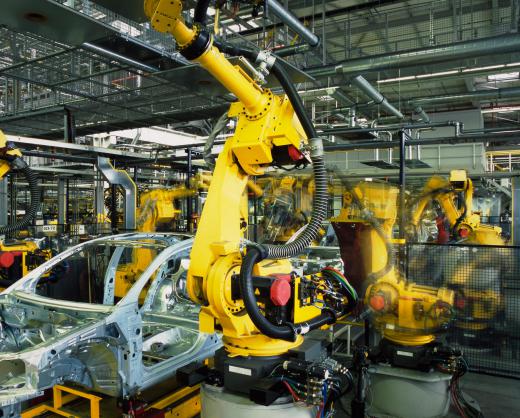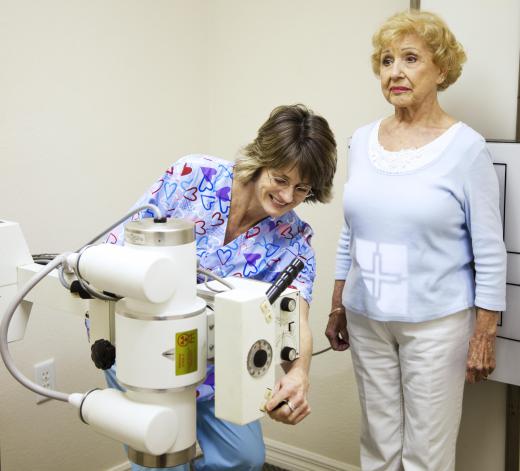The world of automated machines is vast and contains a wide variety of machines and functions, but these machines are typically divided into two major categories: those for consumers and those designed for businesses like retail, health care, and industry. Essentially, an automated machine is a machine unit that performs a function, and often multiple functions, with little or no assistance from a human. Types of automated machines used by consumers include machines for food preparation, transportation, or work. In manufacturing and retail, automated machines can create a product, transport personnel, or vend the product to the customer, usually without the help of a person. Sometimes, a machine used by a business to vend is also used by a customer to buy a product.
Many people deal with an automated teller machine (ATM) to handle everyday banking transactions and get cash. Another of the most common automated machines found in homes is a coffee maker. Bread makers, electric staplers, and copy machines are all machines that automate processes used frequently in daily life. Food vendors and customers alike can benefit from the use of these machines; whenever a person gets a snack from a vending machine, uses the whipped coffee machine at the local convenience store, or fills his own drink at a soda fountain in a fast food restaurant, he is using one.

In manufacturing, automated machines can be used for creating and assembling parts, processing materials, and packaging products for delivery. Many large factories use nearly fully automated systems that receive raw material on the input end and output a packaged product at the end of the production line. Automated machines can also load trucks with the packaged product for delivery to the customer. Most grocery-store packaged snacks are made using a fully automated factory process, yielding snacks that a human hand may have never touched.

In addition to its applications facilitating retail convenience and more efficient manufacturing, automated machinery can also be used to save lives and help people heal. In the hospital, a patient might be on an automated breathing machine to help her breathe. An automated dialysis machine cleans a kidney patient's blood. Some x-ray technicians use automated x-ray machines that rotate and move to provide a reliable x-ray image for the doctor to use in diagnosis. A chiropractor might use an automated massage machine to help relax patients' muscles before providing chiropractic treatment.
